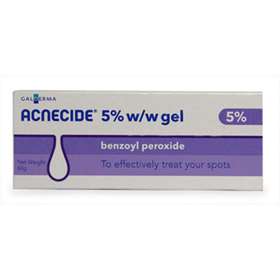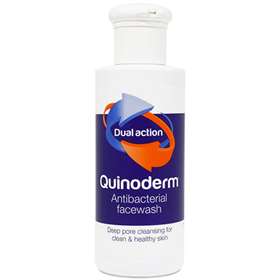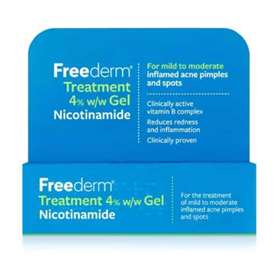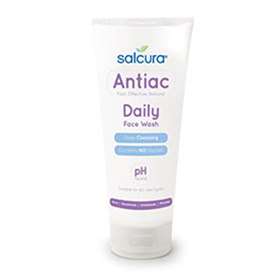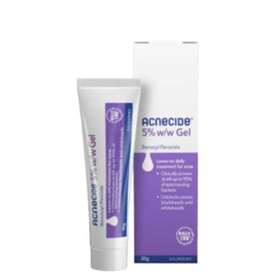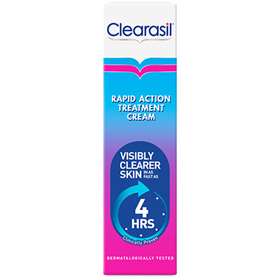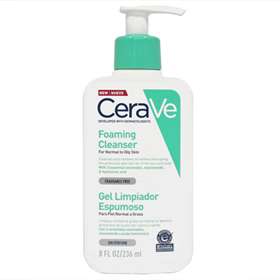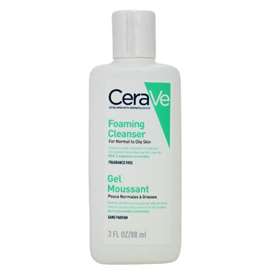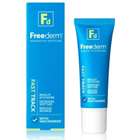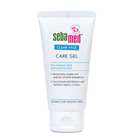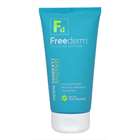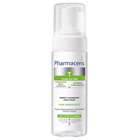What is acne vulgaris?
Acne vulgaris is skin disease that commonly affects humans at some point during adolescence and early adulthood. It is a troublesome condition that typically appears on the face, back, chest and even buttocks. The main characteristics of acne vulgaris are red inflamed skin and outbreaks of pimples,
blackheads and/or whiteheads. Severe cases of acne can result in
scarring.
What causes acne vulgaris?
Acne vulgaris is caused by inflammation of the sebaceous glands (glands that produce oil known as sebum).
Acne is closely linked with puberty as the production of sebum is greatly affected by changes in hormone levels. An increases in testosterone (a male hormone present in both sexes) during puberty causes an over production of sebum by the sebaceous glands. The glands struggle to cope with this increased capacity and can easily become blocked. This causes them to become swollen and enlarged; typically forming a type of spot known as a blackhead or whitehead (pimple).
The inflammation associated with acne is linked to the bacterium
Propionebacterium acnes. Found naturally on the skin, Propionebacterium acnes thrives on sebum, producing waste materials that irritate the sebaceous glands and trigger an inflammatory reaction. When a spot ruptures, this inflammation can spread.
Acne can also be caused by the hormonal changes associated with pregnancy and the menstrual cycle.
Other factors believed to trigger acne include: environmental irritants,; chemical pollutants; heat; humidity; and certain foods.
What are the symptoms of acne vulgaris?
In a word, spots! The symptoms of acne usually first appear as tender, small red spots that go on to become pus-filled pimples and blackheads. Severe cases of acne are often characterised by sore, red skin and multiple inflamed spots that can develop into large, swollen cysts and nodules.
How do I treat acne vulgaris?
There are many products available to help reduce acne and help prevent the condition from returning. Acne treatments typically come in the form of a
cream or
gel, but there are also
face washes,
sprays and
facial wipes available. Most acne treatments take 4-6 weeks to deliver results, so don't be too disheartened in you don't see an immediate difference.
Benzoyl peroxide is a common active ingredient in acne treatments. It is often found in products aimed at mild to moderate cases of the condition. Brands using benzoyl peroxide include:
Quinoderm; and
Brevoxyl. Benzoyl peroxide works by peeling away the top layers of the skin and killing the bacteria responsible for the redness and swelling.
Nicotinamide (niacinamide) is an active ingredient that combats the inflammation of acne, helping to ease discomfort and reduce the chances of severe scarring. Nicotinamide can be found in the
Freederm range of acne vulagris treatments.
Salicylic acid is another common active ingredient in acne treatments. It is usually found in products for spots and mild acne. Brands containing salicylic acid include:
Clearasil and
T-Zone.
Severe cases of acne vulgaris can be treated with antibiotics. If you suffer from severe acne and haven't had much success with topical creams and gels, you should speak with your doctor.
Should I squeeze my spots?
Squeezing spots can be very tempting (and satisfying!), but this should be avoided as it runs the risk of spreading bacteria and pushing infection and inflammation deeper into the skin.
How do I prevent acne?
Acne vulgaris cannot be completely prevented, but measures can be taken to reduce the severity of outbreaks. The best method of preventing acne is to adopt a thorough and consistent cleansing regime.
Washing with a daily medicated facewash, such as
Freederm Wash, will help to cleanse the skin of bacteria and unclog blocked pores. Following this up with a cream or gel will help keep bacteria at bay. However, you shouldn't rely solely on treatments, making a few key changes to your daily habits may also help prevent outbreaks of acne.
Hear are our top tips from preventing acne vulgaris:
- Wash daily with a medicated facewash; preferably one containing salicylic acid or benzoyl peroxide.
- Use a daily acne cream or gel.
- Resist the urge to squeeze spots. If you must, ensure your hands are clean before touching the affected area.
- Use a water-based moisturiser. Oily, paraffin-based cosmetics will block pores and make the condition worse.
- Drink plenty or water and ensure that you get enough Vitamins A, C and E, and zinc in your diet.
- Clean your hair daily to remove oils and unsure your hair isn't touching your face throughout the day.
Salcura Antiac is a relatively new acne treatment that has been featured on Channel 4's Embarrassing Bodies show. It differs from other acne vulgaris treatments because it is an all natural spray with antibacterial and anti-inflammatory properties. If chemical treatments aren't for you,
Witch,
T-Zone and
Optima offer products based on natural ingredient such as sea weed,
manuka honey and
tea tree oil.
What causes acne scars?
For many, scarring is the the unwelcome legacy of acne vulgaris. Acne scars are the result the inflammation associated with severe acne. For further help and information, please visit our
acne scar page.


